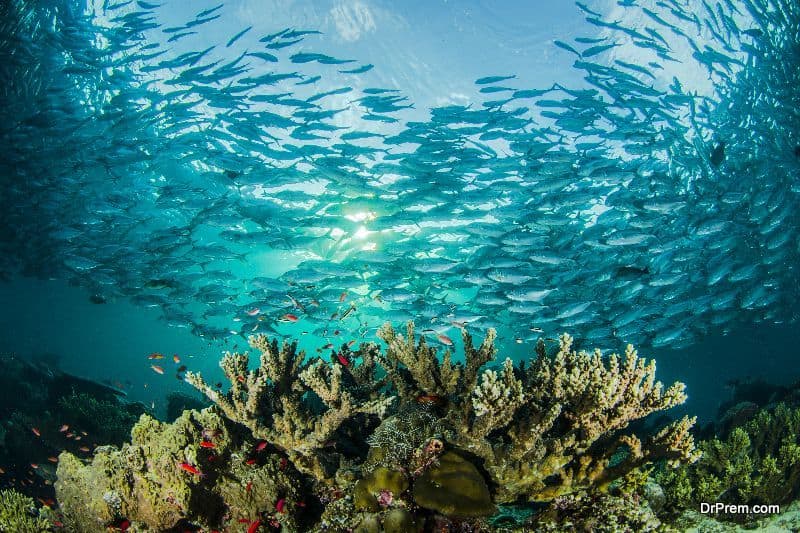‘The coral reefs and everything that depends on them might not survive this century.’ Researcher Ken Caldeira worry might come true if the new study about the impact of CO2 on coral reefs is to be believed. The reason, we all know is no other than CO2 emissions caused by burning of fossil fuels.
According to the study, oceans absorb over one third of the carbon dioxide in the atmosphere. This actually shows global warming to have slowed down but in reality it is polluting the sea. The carbonic acid produced by CO2 emissions (it is also the substance that adds fizz to our drinks) actually reduces carbonate-ions, vital in reef building and the sea water that covers nearly all the coral reef may become too acidic by 2050 for the corals to survive and even if they do survive, reef building will not be possible.
Scientists fear that the already high CO2 concentration levels in the atmosphere might reach an even higher level as human beings keep emitting carbon by burning fossil fuels. It would need a united effort to bring the levels down which might reach from 380 parts per million (ppm) to 880 ppm by 2100 and then it would be too late to take any action. Even at 550 ppm we would have lost all existing coral reefs.
The study that is to be published in the journal Science, warns that Australian and Caribbean reefs are at a greater risk because the carbon-ion levels are already low and could easily reach critical levels.
Coral reefs, the delicate rocky garden type structures under the sea are not only vital for the fish and aquatic life but also for humans. They produce over $375 billion worth of economy per year and are considered very important for treating cancer and other diseases. The tiny coral polyps that make the coral reef actually secrete calcium carbonate to build the base of the corals and whole structure takes years to build as they grow inch by inch. Saving them would mean saving an entire world that quietly lives under the sea.
Via: Reuters


